
Category: Bassoon
Bassoon Bocal Handling Tutorial
In this tutorial, Nick shows you the best way to insert and remove the bocal from the bassoon. He explains why he grips the bocal where he does, and why it minimizes the risk of damaging the bocal. Check it out!
Introducing Opinel Folding Utility Knives for Reedmaking
Recent trends in the world of bassoon reeds have introduced one of the great debates for a new reed-maker: knife or file? There are many advantages to both tools; while files can remove cane very quickly over a broader surface area, a sharp knife is able to make a precision scrape without compromising the structure of the blade to the same extent. Knives do, however, require more time to master the skill of scraping.
The other main issue with today's reed knives is the cost. The most recommended type of blade is the double hollow ground, which even at MMI will run you at least $40. With the cost of bassoons already so high, a young initiate to the world of reeds can't help but question the wisdom of the choices they've made. Personally, I balked at first at the cost of reed equipment and very often it still shocks me how costly some tools are.
Enter the Opinel knife

Opinel is a French knife manufacturer that produces quality blades for all types of purposes, from regular table knives to steak and chef's knives, as well as outdoor knives for camping, hunting, and much more. The blades are made of either carbon or stainless steel. The handles of most of their products are made of high quality wood and feel comfortable in the hand.
The best part is, at least for a reed-maker, the price. Now, of course, this brings to mind several questions for the more discerning reed enthusiast: is it made well? Will it keep from wearing out and rusting? Will it hold its edge? And the answer to all of those is yes, and remarkably so.
I was first introduced to the Opinel knife when I participated in an orchestra festival the summer of my junior year of undergrad. It was in a quaint seaside town in British Columbia. Every night after rehearsals we enjoyed exploring the town or heading to the beach right on the edge of the Puget sound. One day, for our "masterclass," the bassoon teacher took us aside to show us his reed-making process - pretty standard fare for a 2-week festival. The big takeaways from his lecture were to have cane ready in every step of processing, and to obtain one of these Opinel knives. He informed us that he'd been using one knife for several years without needing to sharpen it. While an oboist would cringe at the mention of such a fact, I was fascinated; because, naturally, I didn't like having to sharpen my reed knife every couple of days.
Blade grinds and their shapes
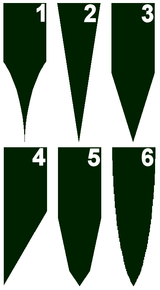 Image from Wikipedia
Image from Wikipedia
The most important aspect of any knife is, perhaps obviously, the blade. But what goes into a blade? How does it maintain its edge and what factors determine this? For reed-makers, one of the most advertised features of a knife is the grind of the blade. Reed knives are generally made with a hollow (#1) or chisel (also known as bevel, #4) grind. The bevel grind makes for a very effective cutting edge - it is a typical blade grind for Japanese kitchen knives. Conversely, the hollow grind, often used for shaving razors, makes a blade that is exceptionally sharp but structurally weak. This means that it will need to be sharpened more often, and consequently will need to be replaced more frequently as well. As a side note, they should actually be sharpened using stropping, as opposed to using hard stone or glass (take note, oboists!).
Opinel knives, in contrast, have convex blades (#6). This is basically the opposite of the hollow grind, where the blades curve outward instead of inward. This means that the blade is structurally stronger and is able to hold its edge well while maintaining a good amount of sharpness. To me, this is the perfect marriage between practicality and utility. Bassoonists do not strictly speaking need blades that are as sharp the hollow ground knives - we don't dig into the cane the way an oboist does because of a bassoon reed's tapered slope. Rather than sharpness, longevity becomes the name of the game; I've been using my Opinel No.8 for five years and I've never looked back. The handle feels comfortable in to grip, much more so than any reed knife, and I've only needed to sharpen it a handful of times.
Opinel also has a fantastic variety of woods for their handles, and a plethora of other color options and even some etching patterns that look really amazing. In the future we hope to carry a greater variety of these types of handles. I think any practically-minded bassoonist will really fall in love with these knives, just like I have!

Gifts for the Bassoonist
Not sure what to buy for the Bassoonist on your holiday shopping list? Don't worry! We've put together a list of ideas at all price levels! Call us if you would like more assistance, we are happy to help!
Under $10
Under $50
$50+
Bassoon Brands and Models
Choosing the right bassoon can be a daunting task. This guide will clarify what bassoon brands and models we offer as you seek the right instrument for you. We are always happy to speak with you over the phone, so please don't hesitate to call us at 1 (612) 331-4717. Click on the model number of each listing below for a link to our store page for that instrument.
Midwest Musical Imports is proud to offer:
Fox Bassoons
Heckel Bassoons
Puchner Bassoons
Walter Bassoons
Wolf Bassoon
Yamaha Bassoons
Read More...
Tips from our Techs--Humidity Issues
Tip from head repair technician, Eric Anderson
Summer is that time of year when humidity increases and the wood body of instruments begins to expand. This happens along the width and length of the wood grain affecting both the fit of keys, levers, and tenons. When the wood expands in the summer months, woodwind instruments often don't fit together without a struggle, if they even fit together at all! We find that this issue is most prevalent during the first year of a new instrument's life, and especially prevalent in newer clarinets.
If this happens with your instrument to the point where abnormal force is required to take it apart, it's best to have an experienced repair technician take care of it. A technician will be able to adjust the fit of the tenon cork, the exposed wood on the tenon, or sometimes both. Ignoring the problem and blowing warm, humid air down your instrument will only make it worse!
The humidity will also make keys fit looser, but don't worry! We never fit keys too tightly in the summertime because they will most likely expand in the fall/winter and potentially bind once the humidity drops. Loose key fittings won't harm your instrument, they only cause them to be slightly noisier. If you can live with the loose key fitting in the summer, great! It should return to normal in the fall/winter. If it is an issue for you, we can certainly fix it, and if we do, don't forget to come back to get the fit readjusted after the humidity changes.
If you ever experience issues with your instrument and don't know what to do, remember we are only a phone call away and are happy to help!!
Introducing our newest repair technician, Brian!
We are happy to announce that we have a new team member! Brian DeGayner has joined MMI in the repair department. He graduated from Southeast Technical in Red Wing with a diploma in band instrument repair in 2016. Prior to joining the repair team at MMI, Brian worked for Twin Cities Instrument Repair in Edina, focusing on flute and double reeds. He is a member of the National Association of Professional Band Instrument Repair Technicians, and attends state and regional conferences. Brian spends most of his free time outdoors, or playing in local orchestras.
We asked Brian a few questions to get to know him better!
What got you started in repair?
"After a few years of playing horn, I realized my love for working with my hands could be applicable to the industry. After talking with Greg Beckwith, I dropped everything and went to Southeast Tech in Red Wing."
What groups were you playing in prior to going to school for repair?
"I have played for several orchestras around Minnesota. Mankato Symphony, St. Andrew’s, Bloomington Symphony, Minneapolis Civic, Wayzata Symphony, and currently St. Paul Civic."
Any favorite pieces?
"I love Mahler’s symphonies, especially 3, 4, and 5. Ein Heldenleben, Holst’s Jupiter, Sibelius....basically anything horn-heavy. Otherwise, I’m usually partial to playing in small ensembles, such as Daniel Baldwin’s Landscapes for Clarinet, Horn, Bassoon and Piano, Martinu’s Quartet for Clarinet, Horn, Cello and Snare Drum, or Barber’s Summer Music."
What is your favorite repair to do?
I love a challenge. My favorite work to do is overhauling instruments: breathing new life into an instrument is very rewarding, and hearing an instrument I fixed on stage always makes me smile.
Any hobbies at home?
I would consider myself a maker. I’ve used my machining experience to make plenty of hand tools and a few machines to help with various projects. Currently, I’m refinishing my tool chest, painting models, and working on my jewelry making skills. I wouldn’t mind getting into watch and clock mechanism repair...
You’ve mentioned your love for the outdoors...
I go hiking and camping as much as I can, year round. I am an Eagle Scout (Troop 494, White Bear Lake, 2009), so I basically grew up outdoors. My family moves a lot of timber every year, and I hunt and fish whenever I can.
Please join us in welcoming Brian to MMI! We are so happy to have him part of our team!
Darrel Hale Bassoon Masterclass

Mini-recital with works by Bach, Mignone & Winstead
Masterclass
Reception following the class
Large selection of bassoons and bocals for trial
Free small repairs
Darrel Hale is the Assistant Professor of Bassoon at Louisiana State University and the Principal Bassoon of Baton Rouge Symphony Orchestra. An avid chamber musician, he also performs regularly as a member of the Timm Wind Quintet and the Conundrum Reed Trio. Before joining the faculty at LSU, Mr. Hale serviced as the Acting Principal of the Knoxville Symphony Orchestra and the Principal Bassoon of the Kentucky and Springfield Orchestras. His teachers include Dr. Yoshiyuki Ishikawa, Per Hannevold, and William Winstead.
We look forward to seeing you at this great, FREE event!!
Virtual Tour of Our New Location
We absolutely love our new location and think you will, too!! The store has doubled in size!! We've added practice/lesson rooms, a recital hall, increased the size of our repair shop and sales floor. Please stop by for a visit! We'd love to show you around!
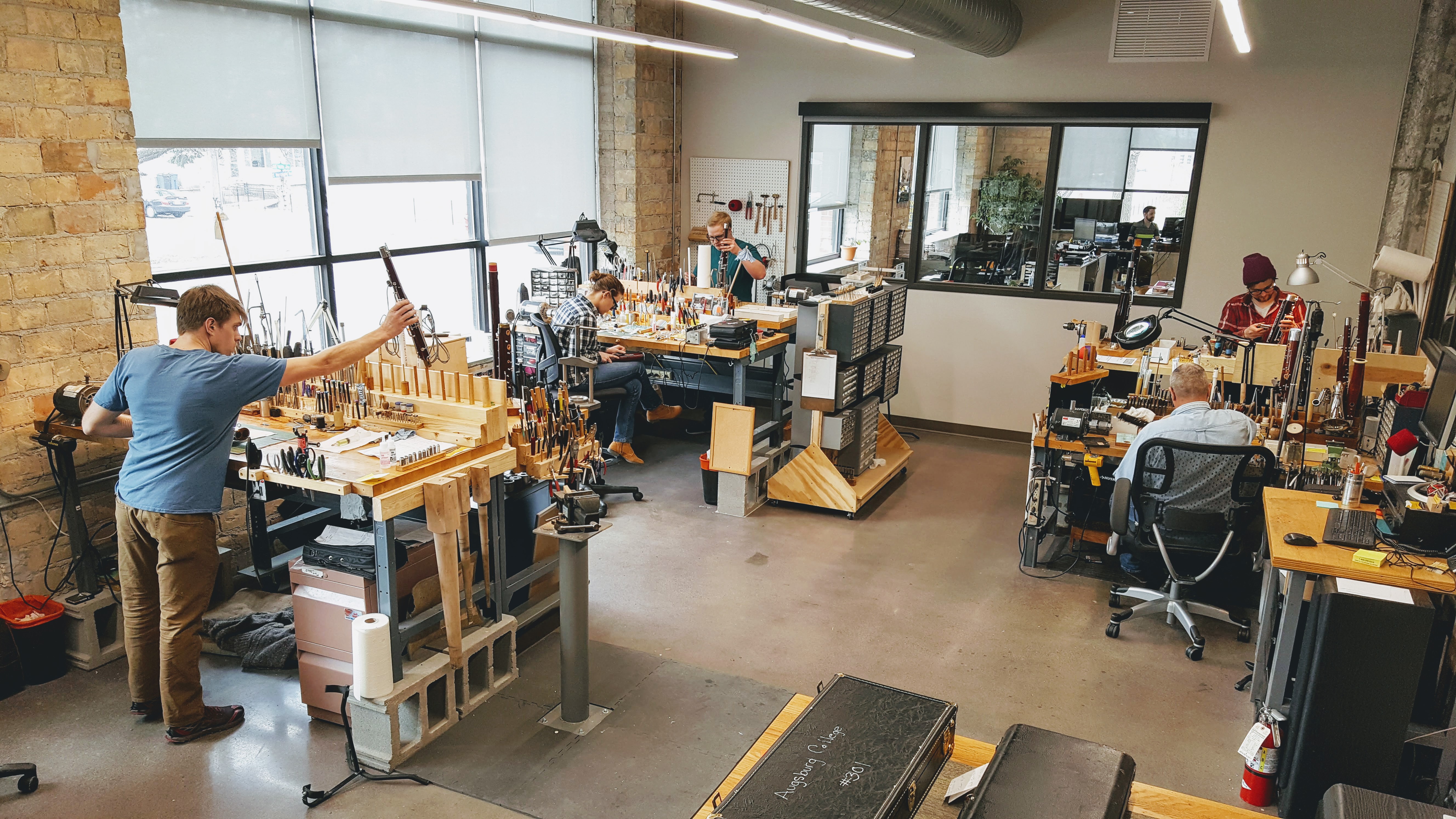 Our repair staff working hard in the new repair shop!
Our repair staff working hard in the new repair shop!
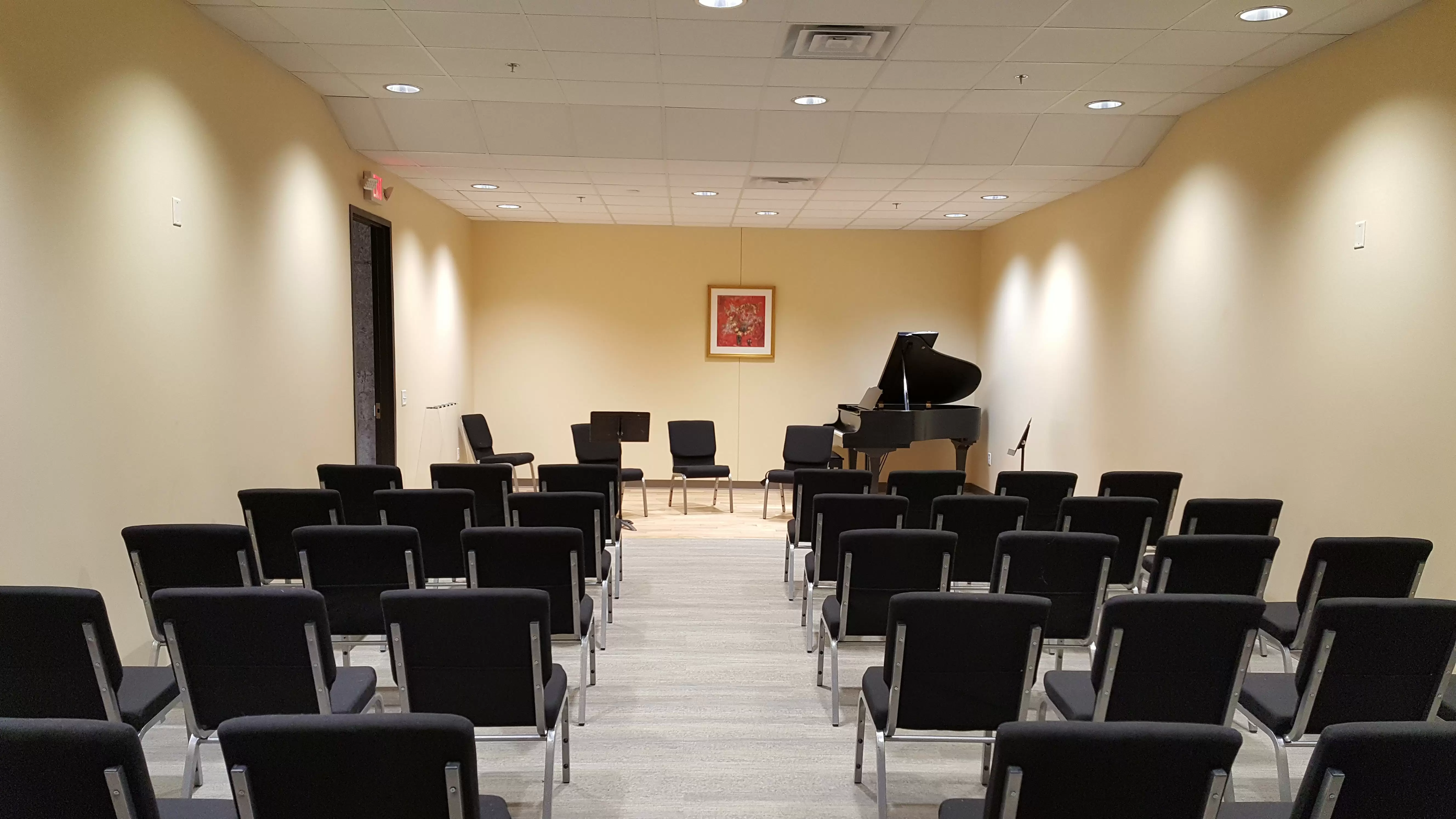 Our new recital hall with seating capacity of 60!
Our new recital hall with seating capacity of 60!
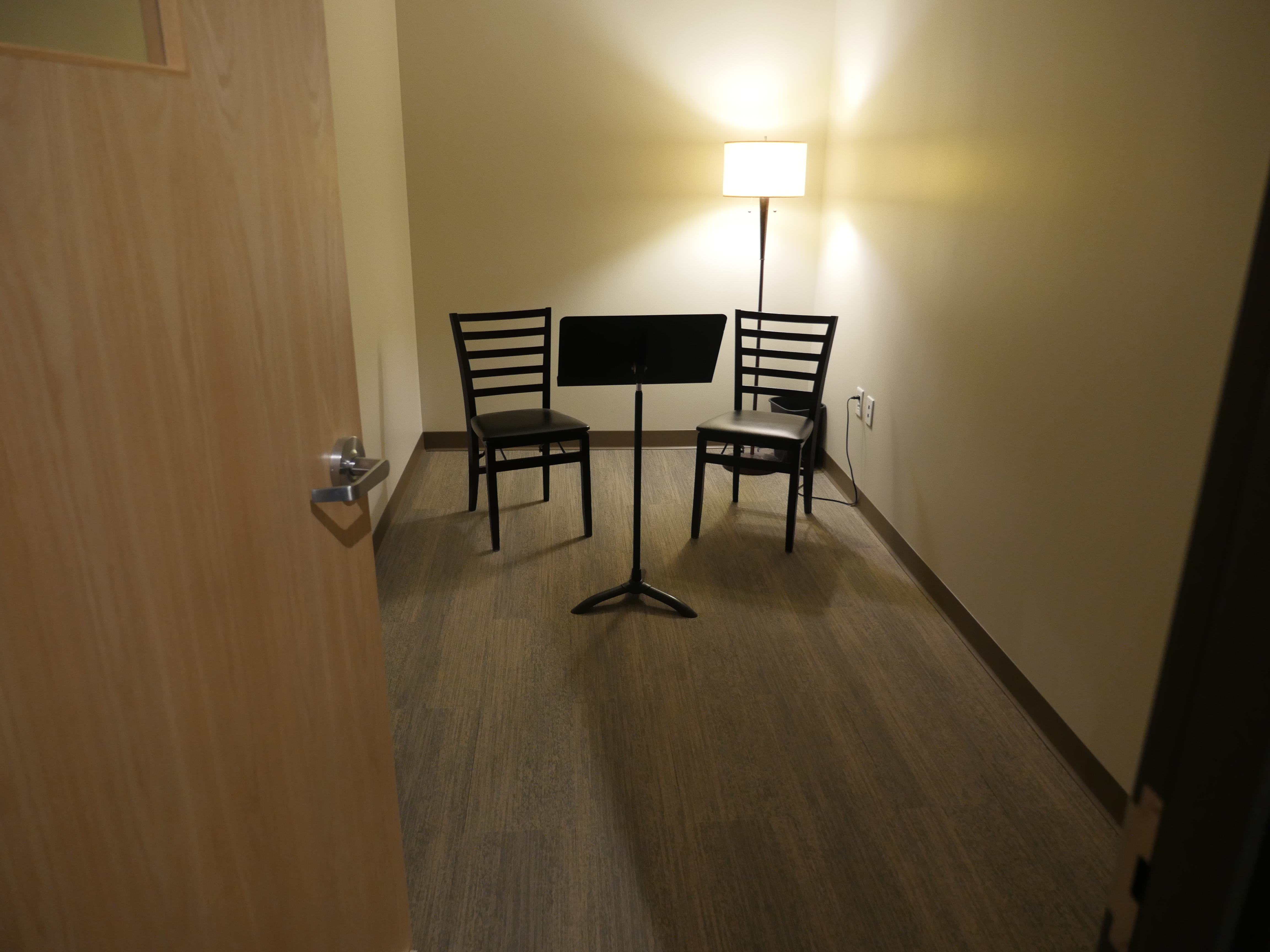 One of our new teaching/practice studios!
One of our new teaching/practice studios!
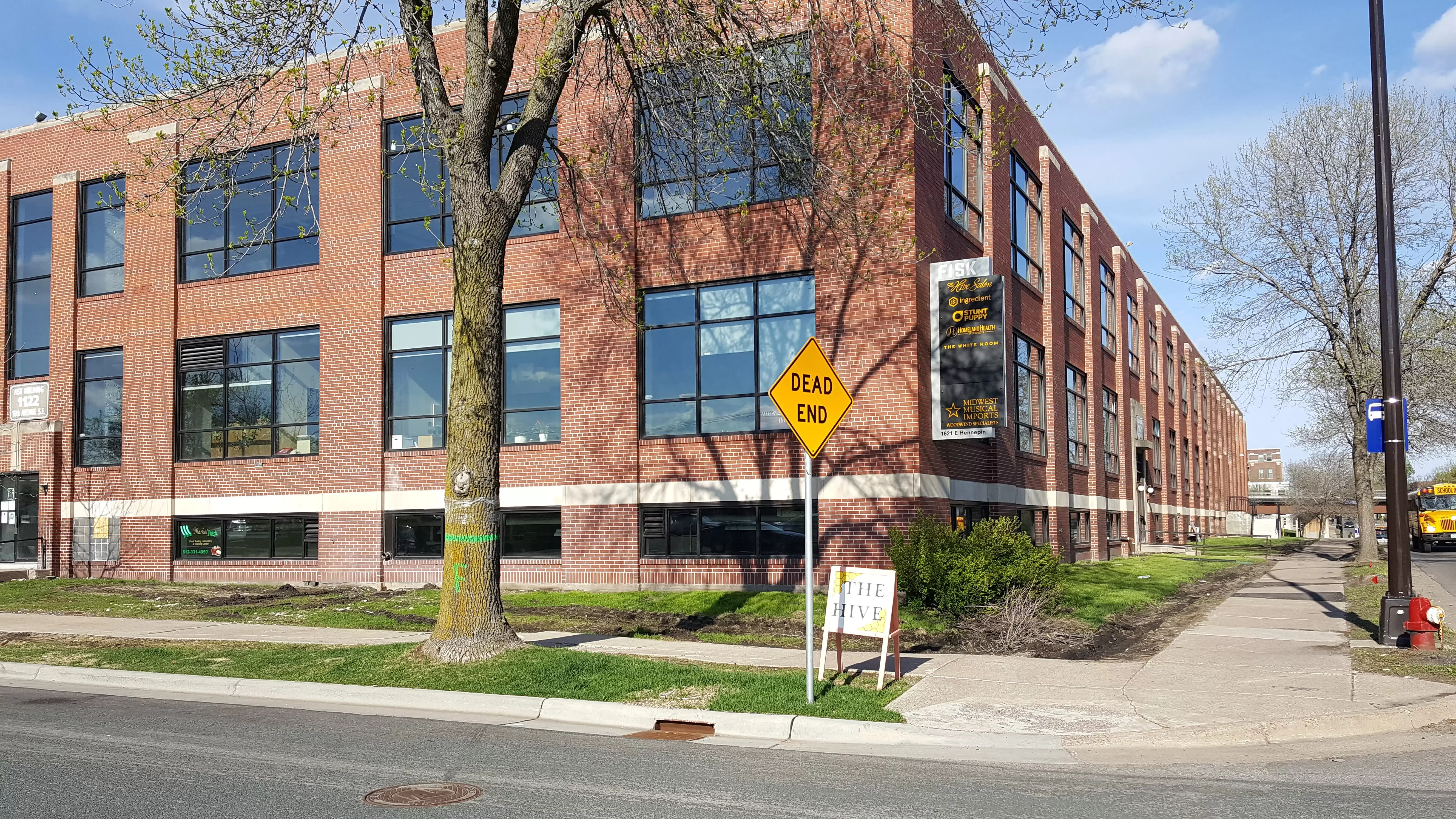 A street view of our new space.
A street view of our new space.
We look forward to welcoming you in the store soon!
Thank you for attending our grand opening celebration!
I would like to extend a very heartfelt thank you to everyone that came to our grand opening celebration! For those of you that came, emailed, sent flowers or called with your best wishes, we are extremely grateful. Below are some photos from the event.
A big thank you again to our generous sponsors/vendors: Buffet-Crampon, Fox Products, Loree, Puchner, Heckel, D'Addario, Peak, and Clark Fobes.
We look forward to many more events and please keep an eye on our calendar for updates!
Best wishes,
Jessica Nelson, General Manager
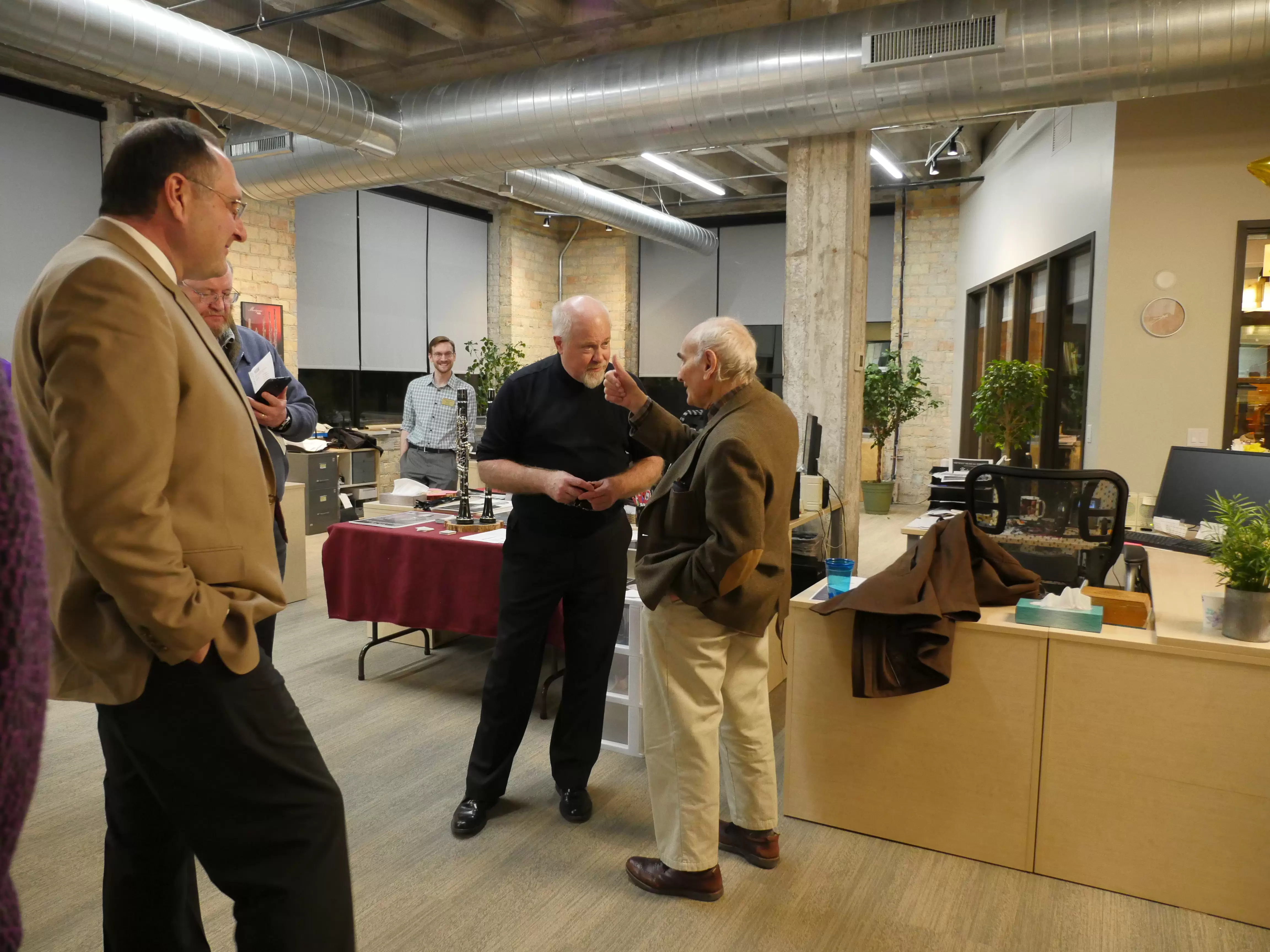 Owner and founder, Mike Aamoth gets a thumbs up after the Friday night reception from long-time customer, David Braslau.
Owner and founder, Mike Aamoth gets a thumbs up after the Friday night reception from long-time customer, David Braslau.
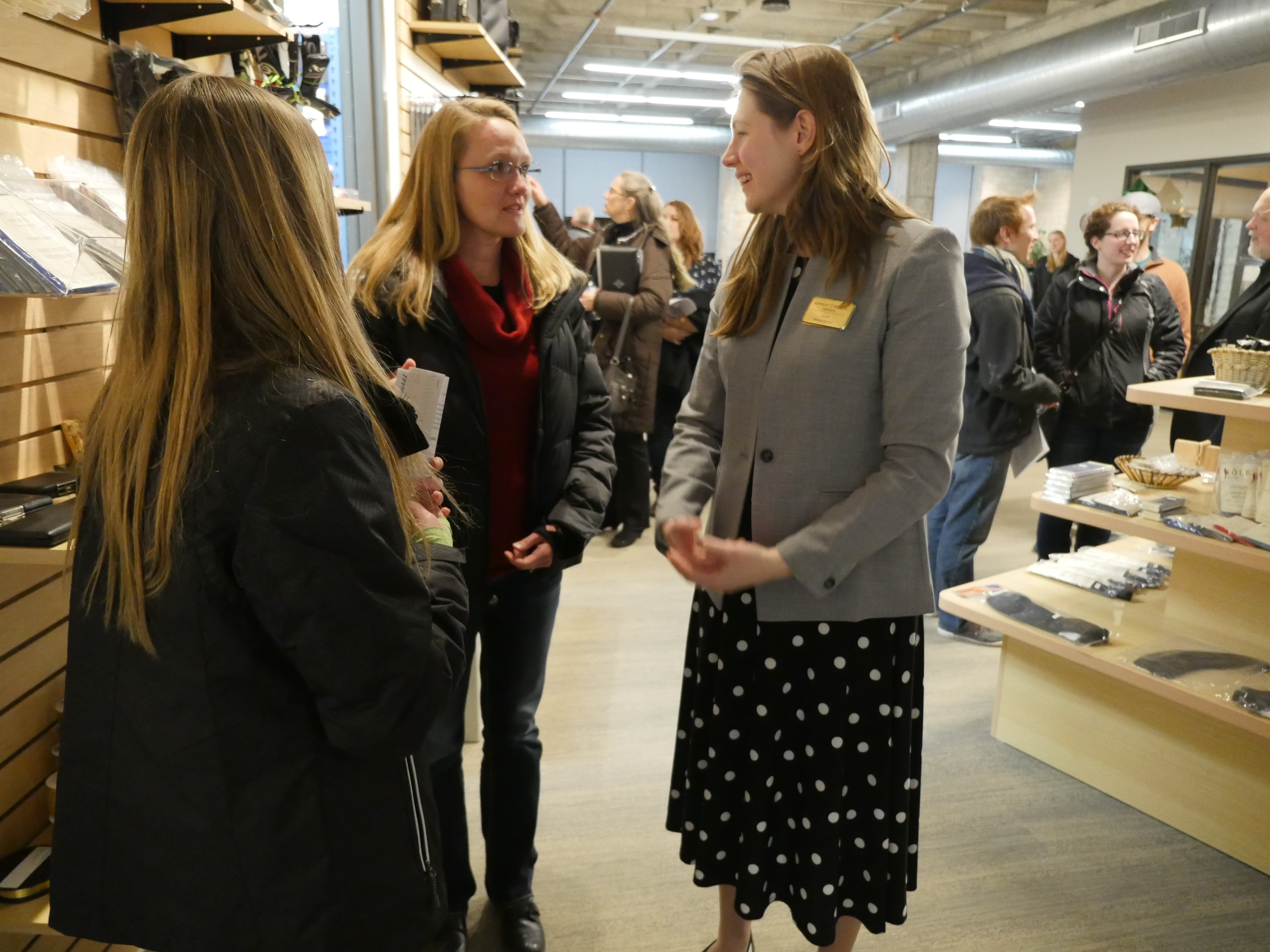 Katie with customers at the Friday night reception.
Katie with customers at the Friday night reception.
 Friday night reception.
Friday night reception.
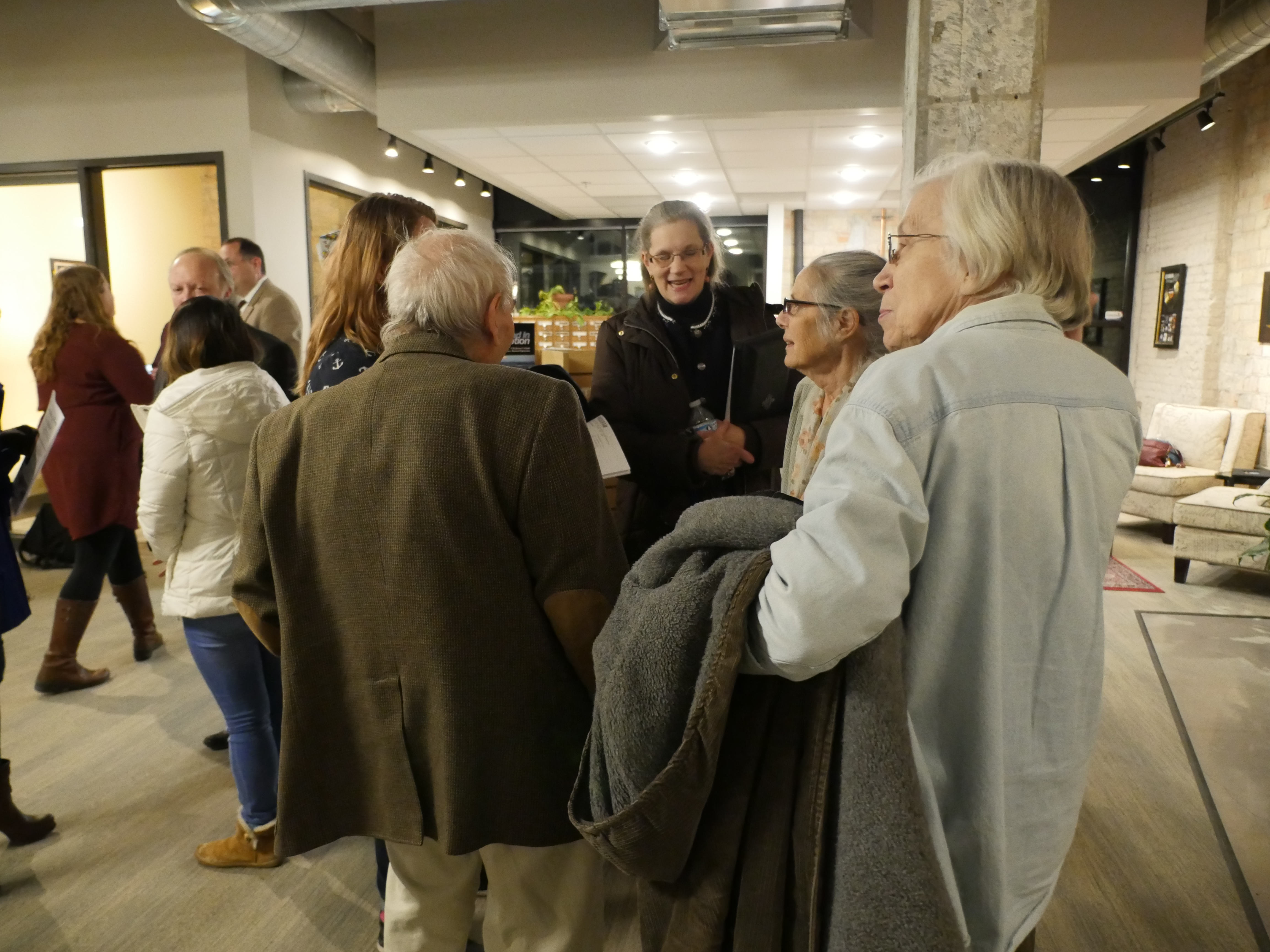 Friday night reception.
Friday night reception.
 Friday night reception.
Friday night reception.
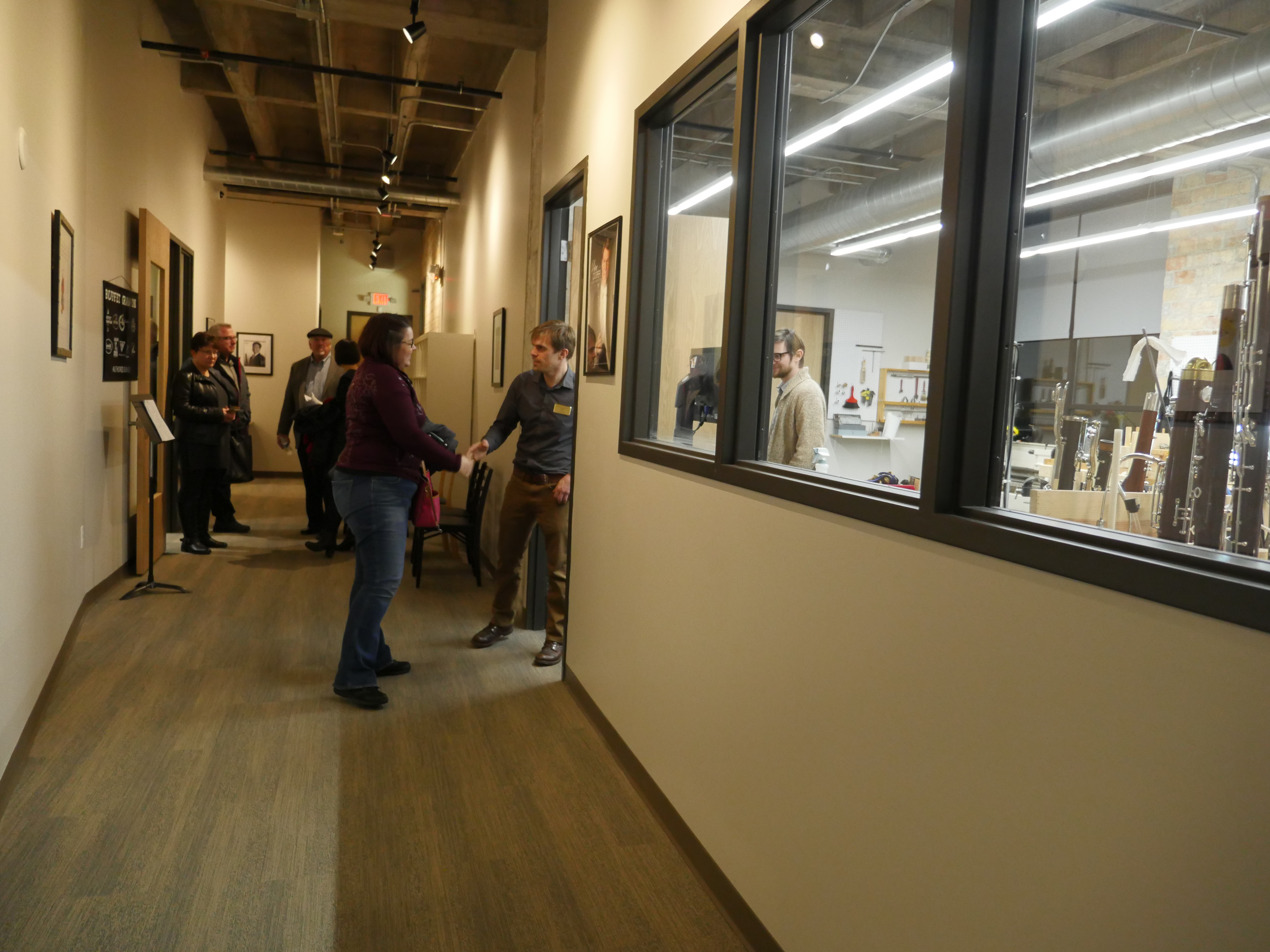 Eric thanks a customer after work in the repair shop.
Eric thanks a customer after work in the repair shop.
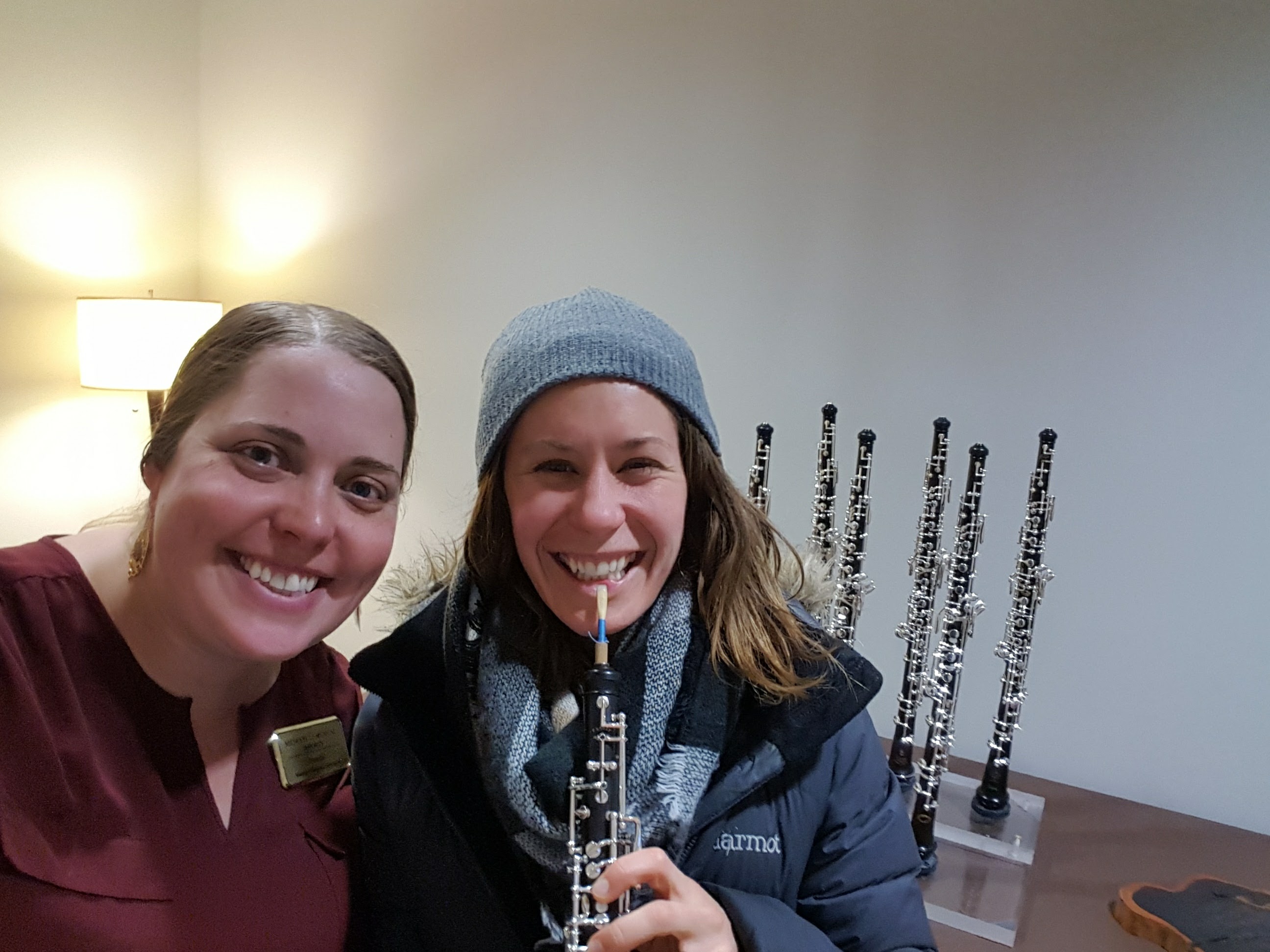 Our first customer during the celebration on Friday!! Jessica with her friend and oboist, Siri Garnaas
Our first customer during the celebration on Friday!! Jessica with her friend and oboist, Siri Garnaas
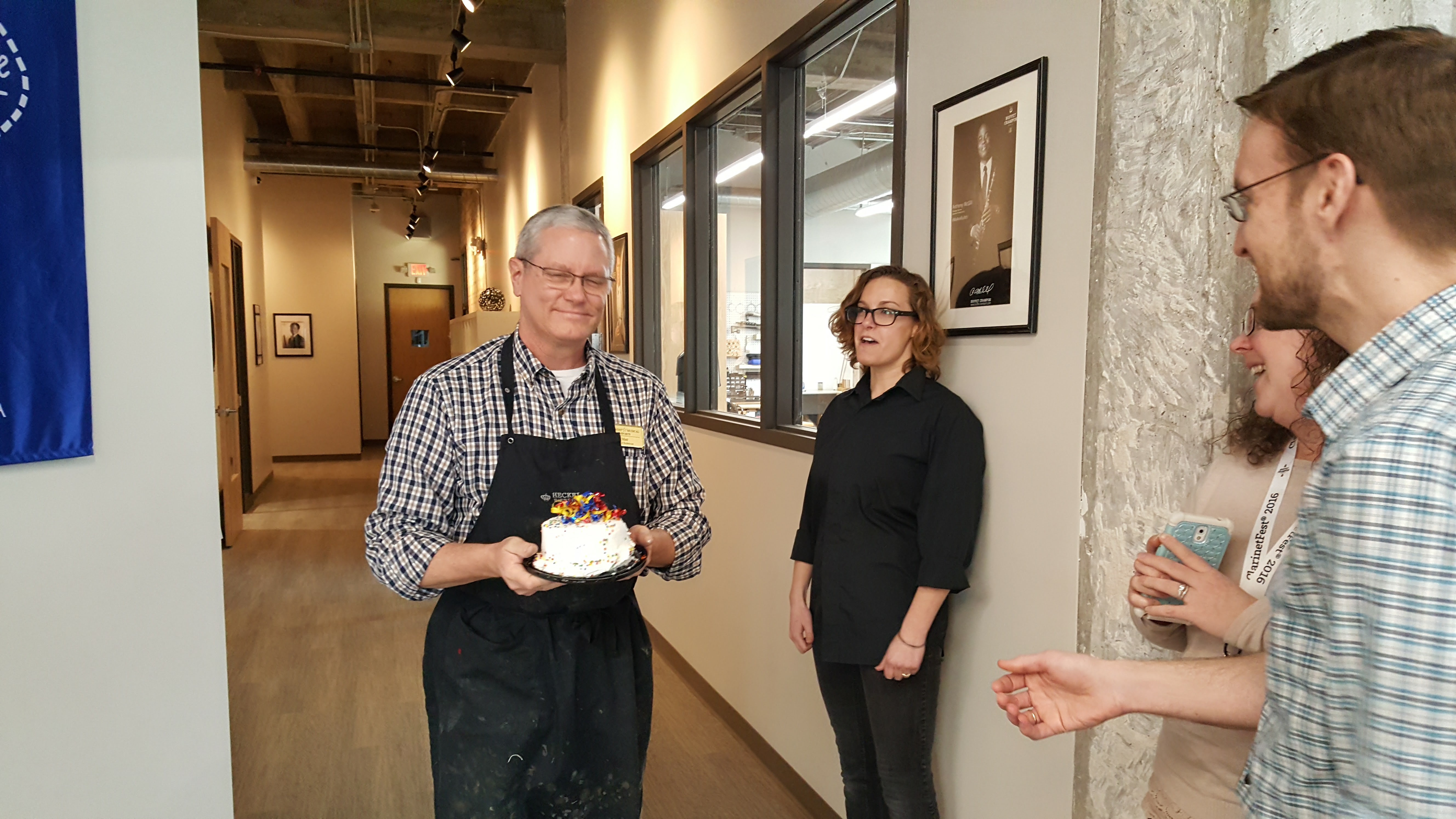 Friday was repair technician, Matt Reich's birthday! We surprised him with a cake.
Friday was repair technician, Matt Reich's birthday! We surprised him with a cake.
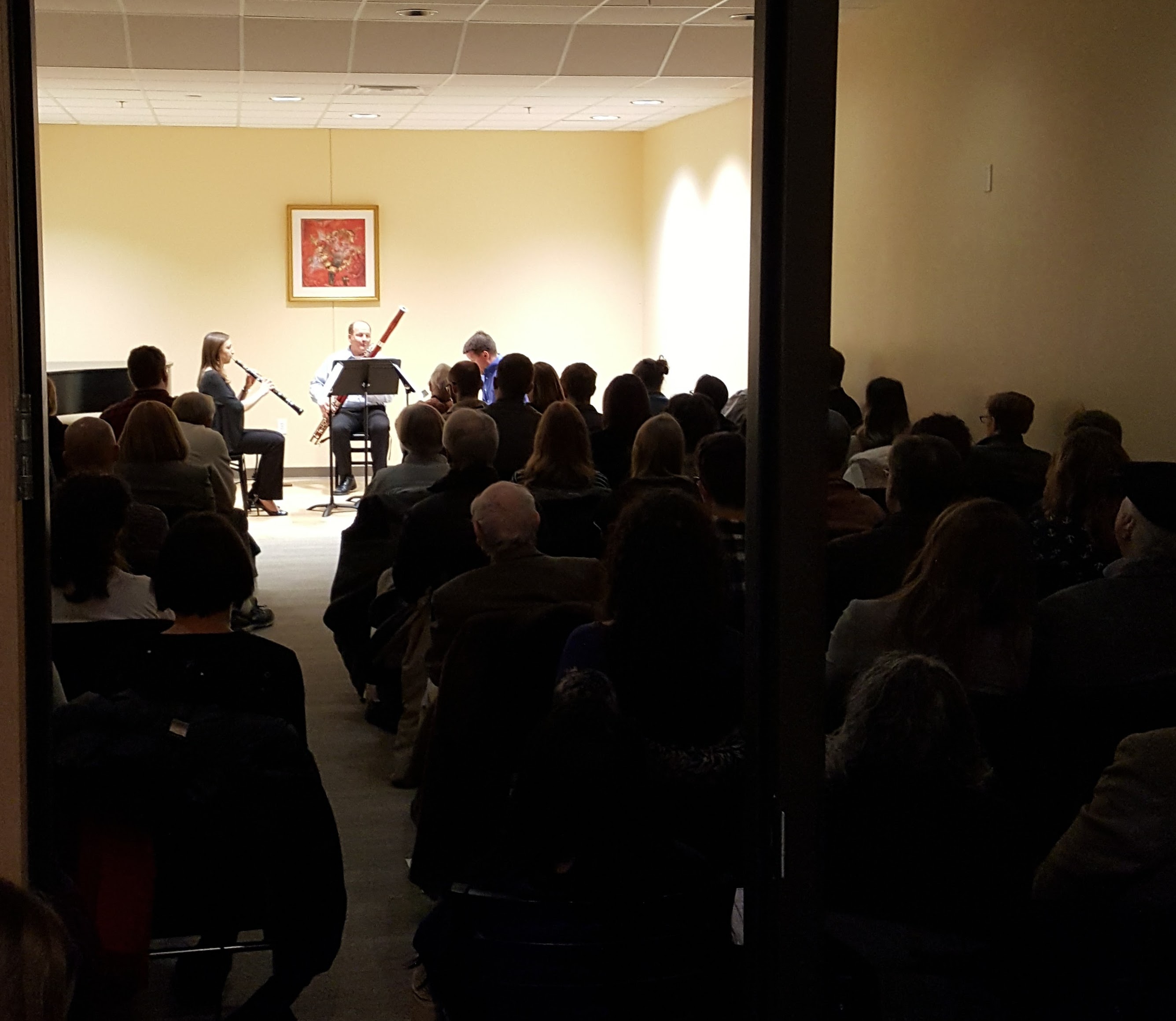 Julie Gramolini William, Chris Marshall, and Greg Williams, of the MN Orchestra during their trio performance
Julie Gramolini William, Chris Marshall, and Greg Williams, of the MN Orchestra during their trio performance
Read More...
MMI Exclusive Sharpening Steels
Now in stock and ready to ship, the Dual-sided sharpening steels for reed knives have returned! After a long hiatus, we began working with a new manufacturer approximately 8 months ago and have finally created a product which is of the highest standards for our customers. The micro-grooves are just fine enough to remove an ultra-fine layer of metal from your knife while the smooth side of the rod will add a very fine edge which is extremely sharp. We have spent a great deal of time with our manufacturer in production to ensure that every detail is perfect and we can present to you a product that we stand behind 100%!
These steels will be exclusively distributed through Midwest Musical Imports.
Check them out in the webstore or you can give us a call in the shop at 800.926.5587 to get yours!
Instrument Cases - Is Yours Damaging Your Instrument?
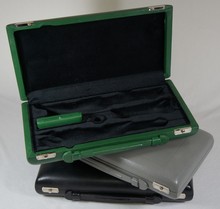 As many players know, our instruments travel just as much as we do. Our instruments spend quite a bit of time being removed from and placed into their cases. If you're investing in your instrument, be sure to invest in an instrument case that cares for your woodwind too.
As many players know, our instruments travel just as much as we do. Our instruments spend quite a bit of time being removed from and placed into their cases. If you're investing in your instrument, be sure to invest in an instrument case that cares for your woodwind too.
Many instruments that come through our repair shop suffer from ill fitting cases. Some cases can actually be detrimental to your instrument's safety. Reoccurring problems on your horn (rods becoming loose, keys going out of alignment) might actually be caused by the way an instrument fits in the case. We have seen bent keys from cases fitting both too tight or with excessive movement. If your current case is not fit to your instrument, be sure to attend to this issue. Scratched plating and blemishes in the body of an instrument can be caused by a loose bocal, screwdriver or other items left in the case. Consider a case with an outer zipper pouch to collect all of your accessories! We're here to help and our sales team has many options to offer when considering updating your case. Visit our online store to see our options for cases: oboe cases, bassoon cases, clarinet cases, saxophone cases. We can also special order cases--call us for more details.
